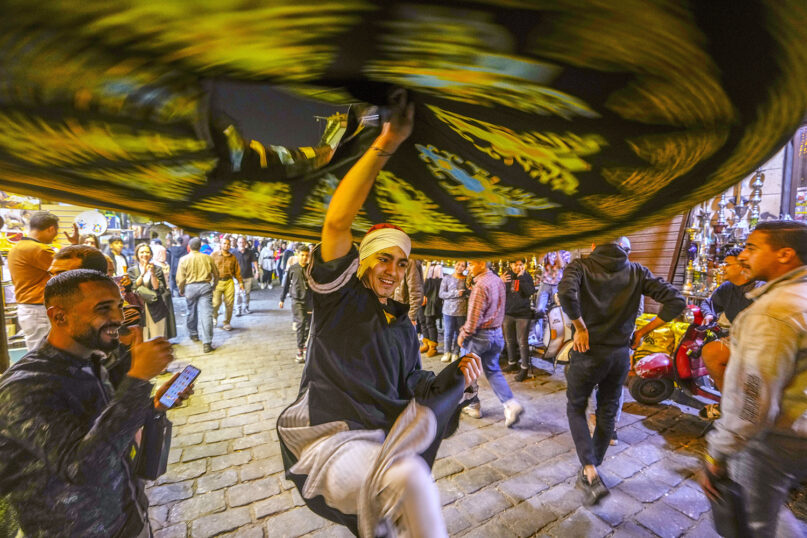Opinion
This holy season in six faiths is a rebuke to Christian nationalism
If this nation does not provide full rights for believers of all faiths, I don’t want any part of it.

(RNS) — Over the past week, my closest cousins and I have been exchanging greetings and best wishes for holy observances. My cousins are Jewish and celebrating Passover, and I’m a Baptist minister enjoying Easter Monday today. I once wrote about my belief against an exclusive understanding of heaven, pointing out that if it didn’t include my Jewish cousins, I certainly didn’t want to end up there.
I feel the same way about America. If this nation does not provide full rights for my Jewish cousins, I don’t want any part of it. The same goes for my friends and neighbors from all different backgrounds and beliefs who will celebrate holidays this month — Ramadan, Vaisakhi and Holi, to name just the most prominent. The concurrent holy days form a portrait of the faith life of the United States as our founding fathers ordained it.
Unfortunately, not everyone sees it that way. Christian nationalism has been on a precipitous rise since the late days of the Trump administration and has continued through last week, when his most fervent supporters likened his arraignment on fraud charges to Christ’s crucifixion. Adherents of this vitriolic ideology do not share in the vision of love and abundance common to so many of the world’s faiths. Rather, Christian nationalists seek to impose their narrow worldview on others, to the detriment of racial and religious minorities, LGBTQ+ people and anyone else who dares to challenge their bigotry.
Christian nationalism is the most potent threat to this nation’s democracy and diversity. But as Christ has taught us, love is more powerful than tyranny. We can defeat the tyranny of Christian nationalism through love for our siblings who live and believe differently than we do. It will require a shared commitment to defending our right to believe and the ability of our neighbors to do the same.
Many are already championing a path forward into a multi-faith future. One need look no further than the Christians Against Christian Nationalism campaign, spearheaded by our friends at the Baptist Joint Committee for Religious Liberty; the advocacy of Rabbi Jonah Pesner, who has spoken about the tradition of welcoming the stranger during Passover; the work of Najeeba Syed, who spoke with me recently about the importance of interfaith relationships during Ramadan; Hindus for Human Rights, who are pushing for interfaith justice during Holi; the list goes on.
Just this past weekend, my family and I went to Easter services at the Washington National Cathedral, where Bishop Mariann Budde preached about the value of religious diversity — a sentiment she also shared when I interviewed her this past week.
Promoting interfaith harmony is in itself a powerful act of resistance. Christian nationalists and their allies in office can continue to spew hate. They can continue to claim that their vision of America is blessed by God. They can continue to deny the truth that this nation, while never perfect, was founded on the idea that people of all faiths and none have a divine right to participate in our democracy. But they can’t take away our solidarity and our commitment to building a nation that works for all of us.
When my sons ask me about the meaning of Easter, I tell them it’s about God’s love. Jesus rose from the dead to remind us that there is always hope and that God’s love is more powerful than any oppressive ruler or system.
This simple message — that God is love and that all of creation is part of God’s Beloved Community and, therefore, deserving of dignity and respect — is at the core of my faith. And it is because of my faith, not in spite of it, that I will continue to fight for a country where all of us have equal standing.
My version of Christianity means I believe that religious diversity, the separation of church and state and religious freedom for all are foundational principles of the American project. We are all welcome in this country. We are all afforded dignity. And we all have a responsibility to stand up for the rights of our neighbors across faith and place.
(The Rev. Paul Brandeis Raushenbush is a Baptist minister and president and CEO of Interfaith Alliance. The views expressed in this commentary do not necessarily reflect those of Religion News Service.)
No comments:
Post a Comment